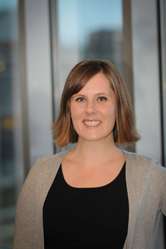Major: Interdisciplinary Studies
“The Garden Nutritional Guide”

 The college years are critical for the formation of dietary patterns that will persist through an individual’s lifetime (Dour, Horacek, et.al, 2013). It is an opportune time then to develop healthy eating habits. Unfortunately, evidence suggests college students’ dietary patterns are not optimal. “The typical college student’s diet is high in fat, sugar, and sodium and lacking in valuable nutrients,” (Kelly, 2013). In a systematic review of nutrition and dietary interventions of college students, Lin (2012), found that interventions did help improve nutrition and dietary patterns. Ha and Caine-Bish completed a series of research projects focusing on nutrition in college students, including whole grain, low-fat dairy, and vegetable and fruit consumption. Their study of vegetable and fruit intake used in-class lectures as the intervention and three-day diet records to gauge effectiveness of the intervention (Ha, 2009). I aim to produce a four-week nutrition and garden guide to help college-aged students at the University of Maryland, Baltimore County (UMBC) increase their basic gardening skills and food sovereignty self-efficacy. To test the effectiveness of the nutrition guide and interventions supported by social cognitive theory, I will instruct student study participants in how to record a three-day food journal, which I will then review for a pre-assessment and post-assessment comparison. For each of the three days, the participant will total their intake of all major food groups as set by the USDA: fruits, vegetables, grains, protein foods, and dairy. Three groups will be analyzed: Garden 1, Garden 2 and Non-Garden participants will receive a written guide and participate in interactions that are supported by social cognitive theory. Garden 2 will not receive a written guide, but will also experience those interactions supported by social cognitive theory. The Non-Garden group will just have the nutrition guide. The more effective intervention will result in a higher vegetable and fruit intake in the post-assessment food journal.
The college years are critical for the formation of dietary patterns that will persist through an individual’s lifetime (Dour, Horacek, et.al, 2013). It is an opportune time then to develop healthy eating habits. Unfortunately, evidence suggests college students’ dietary patterns are not optimal. “The typical college student’s diet is high in fat, sugar, and sodium and lacking in valuable nutrients,” (Kelly, 2013). In a systematic review of nutrition and dietary interventions of college students, Lin (2012), found that interventions did help improve nutrition and dietary patterns. Ha and Caine-Bish completed a series of research projects focusing on nutrition in college students, including whole grain, low-fat dairy, and vegetable and fruit consumption. Their study of vegetable and fruit intake used in-class lectures as the intervention and three-day diet records to gauge effectiveness of the intervention (Ha, 2009). I aim to produce a four-week nutrition and garden guide to help college-aged students at the University of Maryland, Baltimore County (UMBC) increase their basic gardening skills and food sovereignty self-efficacy. To test the effectiveness of the nutrition guide and interventions supported by social cognitive theory, I will instruct student study participants in how to record a three-day food journal, which I will then review for a pre-assessment and post-assessment comparison. For each of the three days, the participant will total their intake of all major food groups as set by the USDA: fruits, vegetables, grains, protein foods, and dairy. Three groups will be analyzed: Garden 1, Garden 2 and Non-Garden participants will receive a written guide and participate in interactions that are supported by social cognitive theory. Garden 2 will not receive a written guide, but will also experience those interactions supported by social cognitive theory. The Non-Garden group will just have the nutrition guide. The more effective intervention will result in a higher vegetable and fruit intake in the post-assessment food journal.
How did you find your mentor for your research project?
In the summer of 2013 I dug myself into UMBC’s conversation about food, which led to many interactions with my mentor, Jill Wrigley. Over time our relationship developed and similar interests provided more than enough work. Jill also serves as the faculty advisor for The Garden and I serve as the Vice President of Academics. The Garden participants will have the option of joining my study.
How did you know this was the project you wanted to do?
At first it was not what I wanted to do, which I think is an important point to make for those interested in research. My past research focused on adolescent girls with nutrition deficiencies, which I hoped to continue. As my mentors, Jill Wrigley, Dr. Luis Pinet-Peralta and Dr. Esther Fleischmann, and I worked through the feasibility of projects I proposed we eventually agreed working with college students would be the best option. Few research projects were published about the nutritional standing of college students or effective interventions, which allowed me to create a meaningful study.
Is this your first independent research project?
This is not my first research project. My first research project was titled From Food Deserts to Community Gardens, Urban Girls Need for Produce. The project was funded by the McNair Summer Research Institute at UMBC and completed in the summer of 2013. I worked with Dr. Pinet-Peralta in the Sociology and Anthropology department, who continues to serve as a resource on my URA project.
Do you get course credit for this work?
I received 3 independent study units for my previous project along with a financial stipend.
How much time do you put into it?
Preparation for the project took 5-10 hours per week from January to May. The project itself took 20-30 hours per week from May to July. Finalizing the project and getting ready to present and publish at various conferences took a total of 40 hours spread out from August to November.
How did you hear about the Undergraduate Research Award program?
I first heard about the Undergraduate Research Award during a session about funding research projects put on by the McNair Scholars Program. After that I noticed advertisements for URA all over the campus from spotlights to researcher profiles.
Was the application difficult to do?
I did not find the application itself difficult, as it mirrors the grant proposal process. For me, the challenge was designing a feasible and meaningful research project. I have learned with the help of Dr. Pinet-Peralta the importance of mapping out all of the methods and being aware of the project limitations.
How much did your mentor help you with the application?
Jill Wrigley helped me design the project for hours and hours and then approved the finalized application. She also took time to write a meaningful recommendation letter. Being a URA mentor is a time commitment, and I am thankful to Jill Wrigley for all the time she has spent with me.
What has been the hardest part about your research?
The hardest part has been creating a nutrition guide that can be backed by existing information and is artistic. Some of the information has become second nature for me as I have studied it in class and in research for 3 years, but now I have to go back and provide resources for each claim I make. Plus I am not savvy with digital art, so I have learned quite a bit.
What was the most unexpected thing?
The project currently does not have participants (still in IRB review) and I have not experienced anything unexpected yet.
How does your research relate to your work in other classes?
My research project is also my degree capstone project.
What else are you involved in on campus?
I was the co-founder of The Garden, I am the current Director of Just Food UMBC, a student representative on the Interdisciplinary Studies Committee, a McNair Scholar, and am teaching a class for SUCCESS students this fall (2014).
What is your advice to other students about getting involved in research?
Be open, do your homework, and relish the opportunity to work with your mentor.
What are your career goals?
I plan to continue my education by pursuing a doctoral degree in public health. Once done with my doctoral level I want to work domestically on the topic of malnutrition.
Did you transfer to UMBC from another institution? Where?
I transferred to UMBC in the fall of 2012 from West Valley Community College in San Jose, California.
9/7/2021